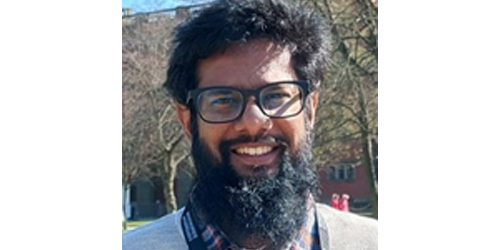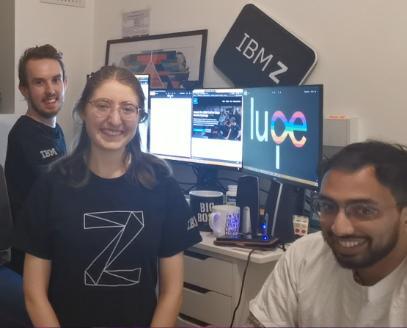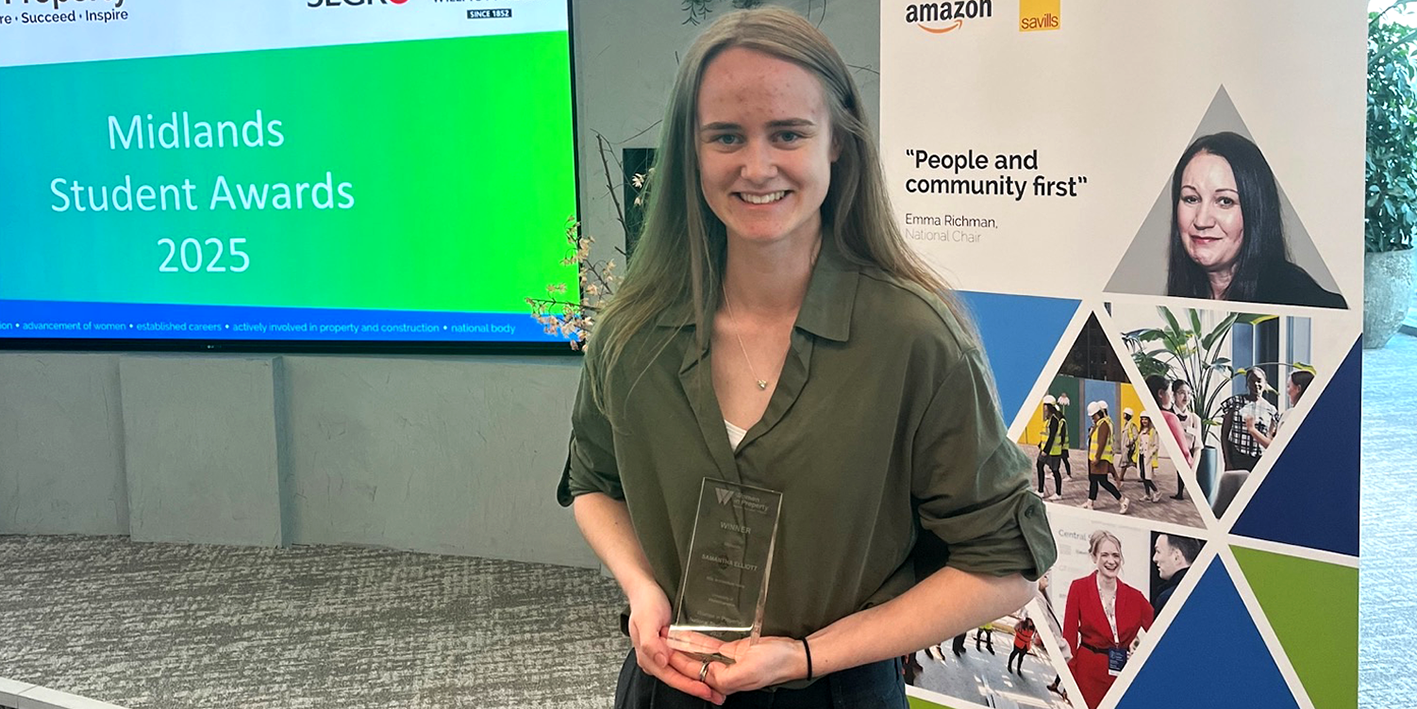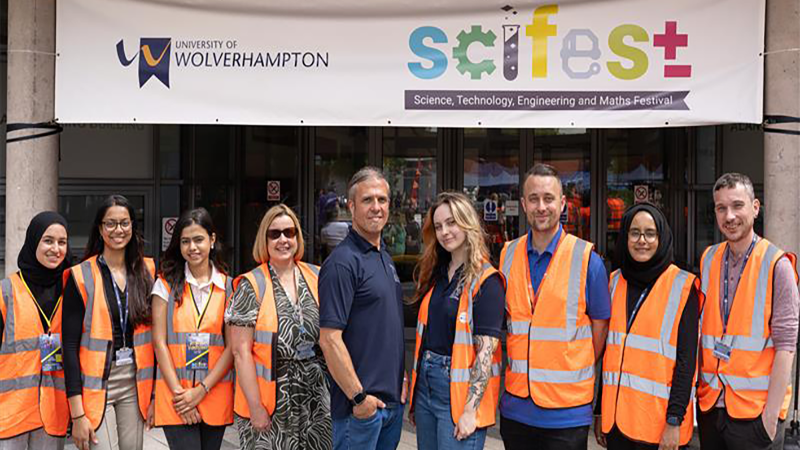
Student foodbank idea bags second place in global technology competition
A team of University of Wolverhampton students have bagged second place in a global competition looking for a technology solution to solve the world’s biggest challenges – including Covid-19.
Three students, studying for Computer Science and Physics degrees in the University’s Faculty of Science & Engineering, entered the 2020 Call for Code Global Challenge University initiative run in partnership with the Clinton Global Initiative during lockdown.
Out of 53,000 students from 45 countries across the globe, the students came second after being chosen as one of five finalists including the winners, University of California Berkeley, the University of the Andes & Pontificia Universidad Javernia (Colombia), University of Technology (Jamaica) and the University of Sydney (Australia). The University was mentioned by Chelsea Clinton in the awards video which was streamed live around the world.
Chloe Allen-Ede, a third year Physics student, Lukas Jaks, a second year Computer Science student and Iman Hussain, a Master’s Computer Science student all study in the School of Computer Science and Mathematics at Wolverhampton’s City Campus. All of the students will now get the opportunity to interview for a potential role at IBM.
The annual competition, led by founding partner IBM and creator David Clark Cause, aimed at both students and full-time professionals, promotes the use of “Tech for Good” around a given theme. This year the competition focused on two themes - Climate Change and the effects of the Covid-19 Pandemic.
The team’s project, Lupe, looked at the distribution of food and business continuity in the event of local lockdowns - a web solution that provides a simple way for small businesses to continue to find customers digitally in the local community, offering a way for items to be distributed to local charities and food banks.
Iman said: “Lupe stands for Lockdown Use Purchasing Environment. The idea was sparked from a brainstorming session we had early on as a team. We noticed in the initial lockdown that a lot of business such as corner shops and restaurants had lots of food reserves but had no way of selling or using it.
“Likewise we also saw lots of people who had hoarded toiletries, but needed food or vice-versa. We wanted to make a platform that allowed people to trade and swap items based on their needs, as well as based on things such as "sell by date". It would also incorporate a system whereby restaurants or organisations could give away their leftovers, or redistribute food that they could no longer sell.
“In the UK we throw away 4.5 million tonnes worth of edible food a year, imagine if we could build a platform that could get that food to the people who needed it. It's been an amazing experience being able to contribute to a global competition and create technologies that are really going to help people.”
Chloe said: “Early in the national lockdown it seemed as if people were panic buying food but we later learned that up to 40% of what UK households eat come from outside the home so increased purchasing is unsurprising.
“The real food surpluses were in the fridges and freezers of the pubs, cafes, restaurants and canteens that were unable to trade during the lockdown period. The system we are working on seeks to address this problem.”
Dr Herb Daly, Senior Lecturer in Computer Science at the University, said: “The Wolverhampton Team chose to look at the challenges caused by the Covid-19 pandemic and how we could manage future more localised lockdowns effectively.
“It’s an amazing achievement to have bagged second place in such a prestigious competition – competing against the best computer minds from all around the world, and really putting Wolverhampton on the map!
“It really was incredible to hear Chelsea Clinton say the words "University of Wolverhampton" out loud in the awards video.
“It has been great to see what they have been able to achieve in such a short amount of time, picking up new technologies and working with different kinds of clients.”
Call for Code has many well-known celebrity supporters around the world including Lady Gaga, Rod Stewart, Trevor Noah and Pierce Brosnan and is supported by the United Nations Human Rights Commission, The Linux Foundation and IBM.
Anyone looking to study for a Computer Science course should register for the next Virtual Open Day on Saturday 14th November 2020.
ENDS
For more information please contact the Corporate Communications Team.


/prod01/wlvacuk/media/departments/digital-content-and-communications/images-18-19/iStock-163641275.jpg)
/prod01/wlvacuk/media/departments/digital-content-and-communications/images-2024/250630-SciFest-1-group-photo-resized-800x450.png)
/prod01/wlvacuk/media/departments/digital-content-and-communications/images-18-19/210818-Iza-and-Mattia-Resized.jpg)
/prod01/wlvacuk/media/departments/digital-content-and-communications/images/Maria-Serria-(teaser-image).jpg)
/prod01/wlvacuk/media/departments/digital-content-and-communications/images-2024/241014-Cyber4ME-Project-Resized.jpg)
/prod01/wlvacuk/media/departments/digital-content-and-communications/images-18-19/210705-bric_LAND_ATTIC_v2_resized.jpg)


